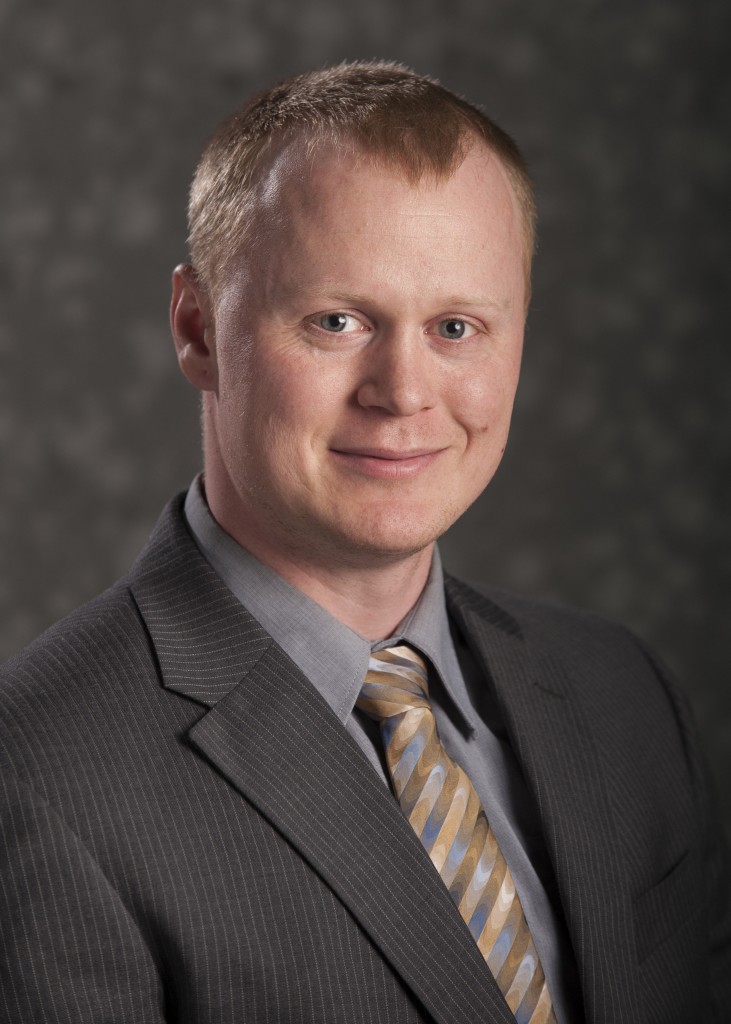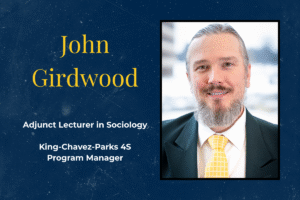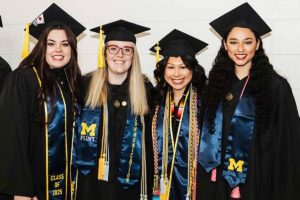
Name: David Duriancik
Title: Assistant Professor
Department: Biology
Classes I teach:
BIO 432/532 Mammalian Physiology
Several laboratory courses as needed by the department
Research or Specific Areas of Interest:
The overarching theme of my laboratory is that nutrients and food have high impact and diverse functions in health and disease through modulation of immune function. Specifically, I focus on the role of vitamin A in development, maturation, and function of antigen presenting cells called dendritic cells using cell and molecular biology techniques. Dendritic cells are targets for vaccine development, cancer therapeutics, and autoimmune tolerance. Dendritic cells not only require vitamin A for normal development and function, but they also metabolize vitamin A to a biologically active form, all-trans retinoic acid. The long-term goal of this research is to develop therapeutics that target dendritic cell metabolism of vitamin A, and other nutrients, to promote a healthy immune system.
Degree(s)/Education:
Ph.D. Biochemical Human Nutrition, Michigan State University
B.S. Molecular Biology/Biotechnology, Clarion University of Pennsylvania
Memberships:
American Society for Nutrition
International Society for Analytical Cytology
How I fell in love with my field:
Even though food is not a drug, the importance of diet in both the treatment and prevention of disease has been acknowledged since Hippocrates. The combination of athletics and growing up on small beef cattle farm in western Pennsylvania, I was always interested in how nutrition could affect human performance. During my undergraduate studies, I had the opportunity to work with Drs. Douglas Smith and William Barnes which sparked my interest in immunology research. Through summer internships I found nutritional immunology as a burgeoning field so I pursued advanced training in the laboratory of Dr. Kathleen Hoag at Michigan State University. In addition, I credit Drs. Elizabeth Gardner, Jenifer Fenton and Dale Romsos from Michigan State for helping develop the confidence to be a successful researcher, scholar, and teacher at UM-Flint. These as well as several other faculty instilled in me values to train and educate future scientist.
What I hope for my time at UM-Flint:
I hope to give back to society by educating the next generation of biomedical researchers and medical professionals. I have had so many strong influences in my undergraduate and graduate training that I hope to make them proud by continuing in their footsteps. I anticipate mutually beneficial growth and development through opportunities to continue to perform biomedical research, research and teaching collaborations, and educating a diverse student population.
What I hope for students in my field:
I hope students in my field realize the diverse career paths available to them, develop professionally through creative thinking and problem solving, and realize their potential to help solve current and future biological questions.
Three things you should know about me:
Being originally from outside of Pittsburgh, PA I love everything about that city especially the food (French fries on salads and sandwiches) and their professional sports teams.
I competed for Clarion University as an NCAA division 2 cross-country and track athlete.
I spend as much time outdoors as possible doing everything from kayaking to rock climbing to golf.
Professional Interests, Activities, or Publications:
Publications:
Duriancik et al. 2015. High levels of fish oil enhance neutrophil development and activation and influence colon mucus barrier function in a genetically susceptible mouse model. J Nutr Biochem. In press.
Gurzell et al. 2015. Marine fish oils are not equivalent with respect to B cell membrane organization and activation. JNB. 26:369-377
Beli et al. 2014. Natural killer cell development and maturation in aged mice. Mech Aging and Dev. 135:33-40.
Clinthorne et al. 2013. NK cell maturation and function in C57BL/6 mice are altered by caloric restriction. J Immunology. 190:712-722.
Hwang et al. 2012. Activation mechanisms of natural killer cells during influenza virus infection. PLOS One. 7:e51858.
Duriancik, DM. Lackey, DE. and Hoag, KA. 2010. Vitamin A as a regulator of antigen presenting cells. J Nutr. 140:1395-1399.
Duriancik, DM and Hoag, KA. 2010. Vitamin A deficiency alters splenic dendritic cell subsets and increases CD8+Gr-1+ memory T lymphocytes in C57BL/6J mice. Cell Immun. 265:156-163.
Awards:
2015; Thiel College – Office of Diversity and Multicultural Affairs Extra Effort Award
2011; Dannon Nutrition Leadership Institute
2010; Michigan State University – Excellence in Teaching Citation
2009; Michigan State University – Certificate in Teaching College Science




